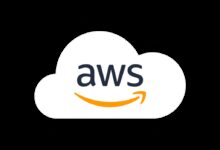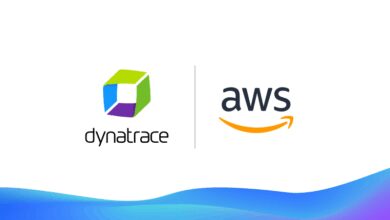AWS Cloud Practitioner Certification: 7 Ultimate Benefits Revealed
Kickstarting your cloud journey? The AWS Cloud Practitioner Certification isn’t just a badge—it’s your golden ticket to understanding Amazon Web Services from the ground up. Simple, powerful, and industry-respected, this cert opens doors you didn’t even know existed.
What Is the AWS Cloud Practitioner Certification?

The AWS Certified Cloud Practitioner is Amazon’s entry-level certification designed for individuals who want to demonstrate a solid understanding of the AWS Cloud. It’s perfect for non-technical roles, aspiring cloud professionals, or anyone looking to validate foundational cloud knowledge. Unlike more advanced AWS certifications, this one doesn’t require hands-on technical experience, making it the ideal starting point.
Who Should Take the AWS Cloud Practitioner Exam?
This certification is not limited to developers or engineers. It’s tailored for a broad audience, including sales, procurement, management, and IT professionals who interact with cloud services. Whether you’re a project manager, a business analyst, or a student exploring tech careers, the AWS Cloud Practitioner Certification gives you the credibility to speak confidently about cloud concepts.
- Sales and marketing professionals needing cloud fluency
- IT managers overseeing cloud migration projects
- Students and career switchers entering the tech industry
Prerequisites and Exam Requirements
Amazon Web Services keeps the barrier to entry low. There are no mandatory prerequisites for the AWS Cloud Practitioner exam. However, AWS recommends at least six months of exposure to AWS Cloud—whether through hands-on experience, training, or self-study. The exam tests four key domains: cloud concepts, security, technology, and billing & pricing.
“The Cloud Practitioner cert is the foundation. It’s where everyone should start before diving into specialty or professional-level AWS certifications.” — AWS Training & Certification Team
Why Pursue the AWS Cloud Practitioner Certification?
Earning the AWS Cloud Practitioner Certification does more than just boost your resume—it reshapes your career trajectory. With cloud computing dominating modern IT infrastructure, having AWS knowledge is no longer optional; it’s essential. This certification proves you understand how cloud services work, how they’re priced, and how they enhance business agility.
Industry Recognition and Credibility
AWS is the world’s leading cloud provider, powering over 1 million businesses globally. Holding an AWS certification signals to employers that you’re serious about cloud technology. Recruiters actively filter for AWS-certified candidates, especially in roles involving cloud adoption, digital transformation, or IT strategy.
- Recognized by top companies like Netflix, Airbnb, and Unilever
- Validates foundational knowledge in a vendor-specific environment
- Enhances professional credibility across technical and non-technical roles
Career Advancement Opportunities
Even if you’re not in a technical role, this certification can fast-track your career. Project managers with AWS knowledge can better communicate with engineering teams. Sales professionals can articulate AWS solutions more effectively to clients. According to a 2023 Global Knowledge IT Skills and Salary Report, certified professionals earn up to 20% more than their non-certified peers.
Moreover, the AWS Cloud Practitioner Certification serves as a stepping stone to more advanced AWS certifications like Solutions Architect, Developer, or DevOps Engineer. It builds the conceptual foundation needed to tackle complex cloud architectures later on.
Exam Structure and Key Domains
The AWS Certified Cloud Practitioner exam (CLF-C02) consists of 65 multiple-choice and multiple-response questions, with a time limit of 90 minutes. The passing score is 700 out of 1000. The exam is delivered through Pearson VUE test centers or online proctoring.
Domain 1: Cloud Concepts (26% of the exam)
This section tests your understanding of fundamental cloud principles. You’ll need to explain the benefits of cloud computing, such as elasticity, scalability, and cost-efficiency. You should also understand the differences between public, private, and hybrid cloud models.
- Define cloud computing and its core characteristics
- Explain the advantages of moving to the cloud
- Understand the shared responsibility model
For deeper insight, visit the official AWS Cloud Practitioner Certification page.
Domain 2: Security and Compliance (25% of the exam)
Security is a top concern for organizations adopting cloud services. This domain evaluates your knowledge of AWS security best practices, compliance standards, and identity management. You’ll be tested on AWS Identity and Access Management (IAM), encryption, and compliance programs like HIPAA, GDPR, and SOC.
- Understand the AWS shared responsibility model
- Explain how IAM policies control access
- Identify AWS compliance programs and their importance
“Security in the cloud is a shared responsibility. AWS manages the security of the cloud; you manage security in the cloud.” — AWS Well-Architected Framework
Domain 3: Technology (33% of the exam)
This is the most technical section of the exam, covering core AWS services like EC2, S3, Lambda, RDS, and VPC. You don’t need to configure these services, but you must understand their use cases and basic functionality. For example, you should know that Amazon S3 is used for object storage, while EC2 provides virtual servers.
- Identify core AWS services and their primary functions
- Understand the difference between compute, storage, and networking services
- Recognize managed services like AWS Lambda and Amazon RDS
A great resource for mastering this domain is the AWS Getting Started Guide, which offers free tutorials and labs.
Domain 4: Billing, Pricing, and Support (16% of the exam)
This domain focuses on cost management and support options. You’ll learn how to estimate AWS costs using the AWS Pricing Calculator, understand the AWS Free Tier, and compare pricing models like On-Demand, Reserved Instances, and Spot Instances. You’ll also explore AWS support plans and how to get help when needed.
- Use the AWS Pricing Calculator to estimate costs
- Explain the benefits of the AWS Free Tier
- Compare AWS support plans (Basic, Developer, Business, Enterprise)
How to Prepare for the AWS Cloud Practitioner Certification
Success in the AWS Cloud Practitioner exam comes from structured preparation. While the exam is foundational, it covers a broad range of topics. A well-planned study strategy increases your chances of passing on the first try.
Create a Study Plan
Start by allocating 4–6 weeks for preparation, dedicating 5–10 hours per week. Break down the exam domains and assign study time accordingly. Focus more on Domain 3 (Technology) and Domain 2 (Security), as they carry the highest weight.
- Week 1–2: Cloud Concepts and Security
- Week 3–4: Core AWS Services and Use Cases
- Week 5: Billing, Pricing, and Support
- Week 6: Practice Exams and Review
Leverage Free and Paid Learning Resources
AWS offers a wealth of free resources to help you prepare. The AWS Training and Certification portal provides digital courses, exam guides, and sample questions. Popular third-party platforms like A Cloud Guru, Udemy, and Coursera also offer comprehensive video courses.
aws cloud practitioner certification – Aws cloud practitioner certification menjadi aspek penting yang dibahas di sini.
- AWS Skill Builder: Official learning platform with free and paid courses
- Udemy – Stephane Maarek’s Course: Highly rated with hands-on demos
- Exam Pro: Offers free YouTube content and premium study paths
Take Practice Exams
Practice exams are crucial for gauging your readiness. They help you get familiar with the question format, time pressure, and knowledge gaps. Platforms like Whizlabs, Tutorials Dojo, and AWS’s own practice test provide realistic simulations.
“I failed my first attempt because I didn’t take enough practice tests. The second time, I scored 920 after doing 5 full-length exams.” — Reddit user, r/AWSCertifications
Common Mistakes to Avoid When Preparing for the AWS Cloud Practitioner Certification
Even with the right resources, many candidates make avoidable errors. Recognizing these pitfalls can save you time, money, and frustration.
Underestimating the Exam
Because it’s an entry-level certification, some assume the exam is easy and don’t study enough. While it’s less technical than other AWS certs, it covers a wide range of topics. Without proper preparation, you might struggle with nuanced questions about pricing models or compliance.
- Don’t rely solely on hands-on experience—study the theory
- Avoid cramming the night before; consistency is key
- Read every question carefully—AWS loves trick questions
Ignoring the AWS Free Tier
The AWS Free Tier allows you to explore real AWS services at no cost for 12 months. Many candidates skip this, relying only on videos and books. But logging into the AWS Console, creating an S3 bucket, or launching a free-tier EC2 instance reinforces learning.
Hands-on experience helps you understand service limitations, such as the 750-hour monthly limit for EC2 instances. This knowledge is often tested in the exam.
Overlooking Exam Strategy
Time management is critical. With 65 questions in 90 minutes, you have about 1.4 minutes per question. Some questions are scenario-based and require careful reading. If you get stuck, mark the question and move on. You can return to it later.
- Use the process of elimination for multiple-response questions
- Flag uncertain questions for review
- Don’t second-guess simple answers—sometimes the obvious choice is correct
Real-World Benefits of Holding the AWS Cloud Practitioner Certification
Earning the AWS Cloud Practitioner Certification isn’t just about passing a test—it’s about unlocking real-world value. Whether you’re aiming for a promotion, a career switch, or better collaboration with technical teams, this certification delivers tangible benefits.
Improved Job Marketability
In today’s job market, cloud skills are in high demand. LinkedIn’s 2023 Jobs on the Rise report listed cloud computing as one of the top skills employers seek. Adding the AWS Cloud Practitioner Certification to your LinkedIn profile or resume increases your visibility to recruiters and hiring managers.
- Appears in AWS-certified candidate searches
- Boosts profile strength on job platforms like Indeed and Glassdoor
- Signals initiative and commitment to professional growth
Enhanced Team Collaboration
For non-technical professionals, this certification bridges the communication gap between business and IT teams. When you understand terms like VPC, IAM, or S3, you can participate in cloud discussions with confidence. This leads to better decision-making and smoother project execution.
For example, a product manager with AWS knowledge can better estimate the technical feasibility of a feature. A finance analyst can interpret AWS cost reports more accurately.
Foundation for Advanced AWS Certifications
The AWS Cloud Practitioner Certification is the first step in AWS’s certification ladder. After earning it, you can pursue role-based certifications like AWS Solutions Architect – Associate, AWS Developer – Associate, or AWS SysOps Administrator – Associate.
Each of these requires deeper technical knowledge, but the Cloud Practitioner cert gives you the confidence and foundational understanding to tackle them. Many professionals report that passing the Cloud Practitioner exam reduced their anxiety when starting more advanced studies.
How the AWS Cloud Practitioner Certification Impacts Salary and Career Growth
While the certification itself doesn’t guarantee a raise, it significantly enhances your earning potential and career mobility. Certified professionals are often viewed as more competent, proactive, and aligned with organizational goals.
Salary Trends for AWS-Certified Professionals
According to the 2023 IT Skills and Salary Report by Global Knowledge, AWS-certified professionals earn an average of $130,840 per year in the U.S. Even entry-level roles with AWS certification command higher salaries than non-certified counterparts.
- Cloud Support Associate: $65,000–$85,000
- Technical Account Manager: $90,000–$120,000
- Cloud Sales Specialist: $70,000–$100,000 + commission
While the Cloud Practitioner is not a high-paying cert on its own, it often leads to roles that are stepping stones to higher-paying positions.
Promotion and Internal Mobility
Many companies encourage or even fund AWS certifications for their employees. Earning the AWS Cloud Practitioner Certification can make you eligible for internal cloud training programs, special projects, or leadership roles in digital transformation initiatives.
For example, a customer service manager who earns the certification might be invited to join a cloud migration task force. This exposure can lead to promotions into cloud operations or IT management.
Global Recognition and Remote Opportunities
AWS certifications are recognized worldwide. This opens doors to remote work, freelance consulting, or international job opportunities. Platforms like Upwork and Toptal often list AWS knowledge as a preferred skill for cloud-related gigs.
aws cloud practitioner certification – Aws cloud practitioner certification menjadi aspek penting yang dibahas di sini.
Additionally, AWS partners and resellers look for certified professionals when building their teams. Holding the Cloud Practitioner certification can help you land a role at an AWS consulting firm, even without prior cloud experience.
Success Stories: How the AWS Cloud Practitioner Certification Changed Careers
Real-world examples demonstrate the transformative power of this certification. From career changers to corporate professionals, many have leveraged the AWS Cloud Practitioner Certification to achieve their goals.
From Retail to Cloud: A Career Transformation
John, a former retail store manager, earned his AWS Cloud Practitioner Certification while working full-time. With no IT background, he used free AWS training and YouTube tutorials to study. After passing the exam, he applied for an entry-level cloud support role at a managed service provider and was hired within three months.
Today, John works as a Cloud Operations Analyst and is pursuing his AWS Solutions Architect – Associate certification.
Empowering Non-Technical Professionals
Sarah, a marketing manager at a mid-sized tech firm, earned the certification to better understand her company’s cloud infrastructure. She found that her newfound knowledge improved her collaboration with the engineering team and allowed her to contribute to cloud cost optimization discussions.
Her initiative was recognized by leadership, and she was promoted to Digital Transformation Lead—a role that didn’t exist before.
Students Gaining a Competitive Edge
Many computer science students earn the AWS Cloud Practitioner Certification before graduation. It gives them a competitive advantage in internships and entry-level job interviews. Universities like Georgia Tech and the University of Texas now include AWS training in their curricula.
One student shared: “I got my first internship at a startup because I mentioned my AWS certification in the interview. They were migrating to AWS and needed someone who understood the basics.”
What is the AWS Cloud Practitioner Certification?
The AWS Certified Cloud Practitioner is an entry-level certification offered by Amazon Web Services that validates an individual’s understanding of the AWS Cloud. It covers core cloud concepts, security, services, and pricing models. It’s ideal for non-technical roles, beginners, and professionals seeking foundational cloud knowledge.
How long does it take to prepare for the AWS Cloud Practitioner exam?
Most candidates spend 4 to 6 weeks preparing, dedicating 5–10 hours per week. If you have prior cloud experience, you might need less time. Beginners should allocate more time for hands-on practice and concept review.
Is the AWS Cloud Practitioner Certification worth it?
Yes, especially if you’re new to cloud computing. It boosts your resume, enhances your understanding of AWS, and serves as a foundation for advanced certifications. Employers value AWS knowledge, and the certification can lead to better job opportunities and higher salaries.
Can I take the AWS Cloud Practitioner exam online?
Yes, the exam can be taken online via Pearson VUE’s remote proctoring service or at a physical test center. You’ll need a quiet environment, a webcam, and a stable internet connection for the online option.
How much does the AWS Cloud Practitioner exam cost?
The exam fee is $100 USD. AWS occasionally offers exam vouchers through training programs or events like AWS re:Invent. Students and educators may qualify for discounts through the AWS Educate program.
The AWS Cloud Practitioner Certification is more than just a credential—it’s a career catalyst. Whether you’re starting from scratch or looking to enhance your current role, this certification equips you with essential cloud knowledge recognized worldwide. From understanding core services like S3 and EC2 to mastering security and pricing models, the journey builds confidence and competence. With the right preparation, real-world benefits, and a clear path to advanced certifications, there’s never been a better time to earn your AWS Cloud Practitioner Certification.
aws cloud practitioner certification – Aws cloud practitioner certification menjadi aspek penting yang dibahas di sini.
Further Reading:









